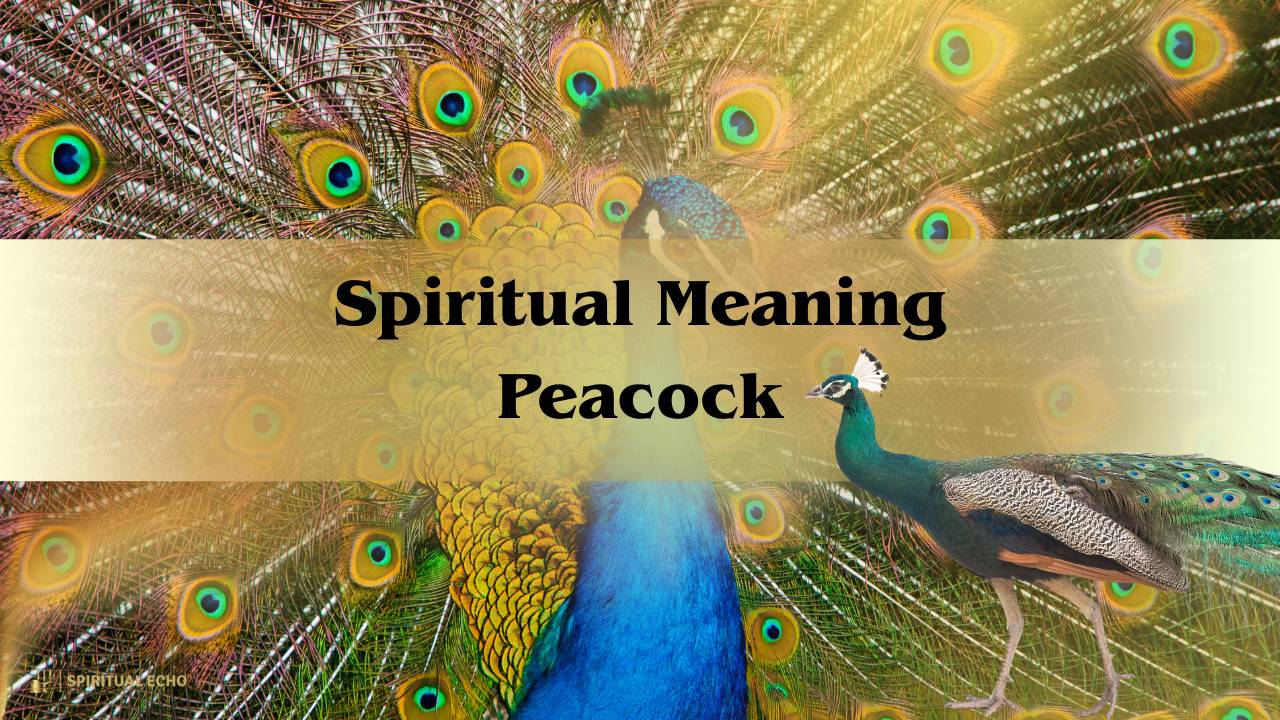Choosing to abstain from eating meat can offer various spiritual benefits. Exploring the many spiritual benefits of not eating meat can offer valuable insights into holistic well-being.
Many individuals believe that a plant-based diet promotes a sense of compassion and empathy towards all living beings, aligning with their spiritual perspective.
A meat-free diet is often viewed as a way to purify the body and mind. It shows a deeper connection to one’s inner self and the world around them.
It can also enhance mindfulness and discipline, contributing to a more balanced and spiritually enriched life.
What are the spiritual benefits of not eating meat? The decision to avoid meat can yield several spiritual advantages. Many believe it fosters compassion and empathy for all living creatures, aligning with their spiritual principles. A meatless diet can also purify the body and mind, deepening one’s connection to their inner self and the world. This choice encourages mindfulness and self-discipline, enriching one’s spiritual journey.
- Spiritual Benefits Of Not Eating Meat: Brief Description
- Understanding The Spiritual Connection Between Diet And Consciousness
- What Happens When You Stop Eating Meat Spirituality?: Giving Up Meat
- Enhancing Spiritual Awareness Through Mindful Eating
- How A Plant Based Diet Promotes Compassion And Non Violence
- Increased Energy And Vitality On A Plant Based Diet
- Incorporating Mindfulness Practices Into Mealtime Rituals
- Cultivating Compassion And Empathy Through Dietary Choices
- The Impact Of A Plant Based Diet On Physical And Mental Well-Being
- The Concept Of Ahimsa (Non-Violence) And Its Relevance To A Plant-Based Diet
- Exploring The Spiritual Benefits Of Increased Mindfulness In Food Choices
- The Role Of Meditation And Spirituality In Supporting A Meat-Free Lifestyle
- Tips For Transitioning To A Plant-Based Diet For Spiritual Benefits
- FAQ About Spiritual Benefits Of Not Eating Meat
- Final Thought 💭
Spiritual Benefits Of Not Eating Meat: Brief Description
Adopting a vegetarian or vegan diet brings numerous spiritual benefits. It aligns with principles of compassion and empathy for all living beings, showing a deeper connection to one’s spiritual values.
This dietary choice is often seen as a means to purify both the body and mind, facilitating a deep connection with one’s inner self and the world.
It encourages mindfulness and self-discipline, contributing to a more spiritually enriched and balanced life. These spiritual advantages make not eating meat a meaningful choice for many individuals.
Spiritual Reasons For Not Eating Meat?
There are spiritual reasons behind the choice to eliminate meat. Many find it aligns with the principles of compassion, as it reflects empathy for all living beings.
This lifestyle choice is often seen as a spiritual path to purify personal health, deepening one’s connection to their spiritual beliefs.
It also promotes mindfulness and self-discipline, contributing to a more spiritually fulfilling life. These spiritual motivations drive many individuals to give up meat can lead to physical well-being.
Understanding The Spiritual Connection Between Diet And Consciousness
The spiritual connection between diet and consciousness is a deep concept. It suggests that the food we consume can significantly impact our spiritual awareness.
Maintaining a mindful and balanced diet is believed to enhance our spiritual consciousness and deepen our self-awareness and understanding of the world around us.
This connection underscores the importance of choosing our nourishment wisely, as it can affect our state of consciousness, highlighting the significant role of diet in our spiritual journey.
The Connection Between Diet And Spirituality
The link between diet meat and spirituality is a compelling one. It suggests that the food we eat can influence our spirituality. Many believe that a mindful and balanced diet can enhance our spiritual connection.
Allowing us to feel more in tune with our inner selves and the universe. This connection emphasizes the importance of choosing our food with care, recognizing that our dietary choices can play a vital role in our spiritual journey.
What Happens When You Stop Eating Meat Spirituality?: Giving Up Meat

When you stop eating meat with a focus on spirituality, several changes can occur. Many individuals report feeling a heightened sense of empathy and compassion for all living beings.
This dietary shift can lead to a deeper spiritual connection and a sense of inner peace. It often promotes mindfulness about one’s choices, fostering self-discipline and a more balanced, spiritually enriched life.
Ultimately, abstaining from meat for spiritual reasons can lead to a more harmonious relationship with oneself and the world.
Spiritual Meaning Of Eating Meat
The spiritual meaning of eating meat varies across cultures and beliefs. For some, it symbolizes sustenance and survival, connecting them to nature’s cycles.
Others see it as a test of self-control, as the spiritual benefits of not eating meat can demonstrate discipline and compassion.
Ultimately, the spiritual significance of eating meat hinges on personal values and cultural context, making it a diverse and deeply individual aspect of spirituality.
Enhancing Spiritual Awareness Through Mindful Eating
Elevating spiritual awareness through mindful eating is a powerful practice. By consciously choosing and savoring each bite, meat eaters can develop a deeper connection to their food and the source of nourishment.
This heightened awareness extends beyond the physical act of eating, fostering gratitude for nature’s abundance and a sense of interconnectedness with all life.
Mindful eating can become a form of meditation, promoting spiritual growth by nurturing an appreciation for the sustenance that sustains both body and soul.
As you engage in the mindful ritual of eating, imagine it as a gentle touch to the forehead of your soul, a gesture that symbolizes the connection between your nourished body and the spiritual essence within.
Vegetarianism And Spirituality
Vegetarianism and spirituality often intertwine, as many individuals believe that abstaining from meat aligns with their spiritual values. This dietary choice is seen as a path to compassion, promoting empathy for all living beings.
By avoiding harm to animals and embracing plant-based diets, many find a deeper connection to their spiritual journey. Vegetarianism or veganism becomes a tangible way to live out these values and foster a sense of harmony with nature and the world.

How A Plant Based Diet Promotes Compassion And Non Violence
A plant-based diet can actively promote compassion and non-violence in several ways. By abstaining from consuming animal products, individuals demonstrate empathy towards sentient beings, minimizing harm.
This dietary choice aligns with the principle of “ahimsa,” non-violence in many spiritual traditions. Showing a sense of harmony with the world.
Plant-based diets often lead to reduced environmental impact, reducing violence against the planet. Choosing a plant-based diet becomes a tangible way to practice compassion and non-violence in daily life.
Increased Energy And Vitality On A Plant Based Diet
Opting for a plant-based diet can result in increased energy and vitality for many individuals. Such diets are typically rich in nutrients, fiber, and antioxidants, promoting overall wellness.
With a focus on fruits, vegetables, and whole grains, they provide sustained energy throughout the day.
The absence of heavy, meat-based meals can lead to feeling lighter and more energetic, which, over time, can contribute to a sense of increased vitality and improved health.

Incorporating Mindfulness Practices Into Mealtime Rituals
Incorporating mindfulness practices into mealtime rituals can be a transformative experience. By focusing on the present moment and savoring each bite, individuals can enhance their connection with food and its flavors.
This mindful approach promotes gratitude for the nourishment provided by the meal, fostering a deeper appreciation for the act of eating.
It also encourages better digestion and can lead to a more balanced relationship with food, contributing to overall wellness and a sense of mindfulness in daily life.
Cultivating Compassion And Empathy Through Dietary Choices
Cultivating compassion and empathy through dietary choices is a powerful way to make a positive impact. Opting for a plant-based diet, for example, reflects a commitment to minimizing harm to animals.
Fostering empathy for all living beings. Such choices align with the principle of “ahimsa,” or non-violence, in many spiritual traditions.
By consciously selecting foods that promote kindness and sustainability, individuals can nurture a deeper sense of compassion, both towards animals and the planet, fostering a more harmonious world.

The Impact Of A Plant Based Diet On Physical And Mental Well-Being
The impact of a plant-based diet on physical and mental well-being is remarkable. Such diets, rich in fruits, vegetables, and whole grains, provide essential nutrients and antioxidants, promoting physical health.
They often lead to better weight management and reduced risk of chronic diseases. Plant-based diets are associated with improved mood and mental clarity.
As they avoid the mood swings and lethargy that can accompany heavy meat-based meals. This dietary choice can contribute significantly to overall wellness, both physically and mentally.
The Concept Of Ahimsa (Non-Violence) And Its Relevance To A Plant-Based Diet
The concept of Ahimsa, meaning non-violence, holds deep relevance to a plant-based diet. Ahimsa advocates avoiding harm or violence to any living being, aligning with the choice to abstain from animal products.
By adopting a plant-based diet, individuals honor this principle, showing compassion and empathy towards animals. It becomes a tangible way to practice non-violence in daily life.
Promoting harmony with all living creatures and fostering a sense of peace and ethical responsibility in their dietary choices.

Exploring The Spiritual Benefits Of Increased Mindfulness In Food Choices
Exploring the spiritual benefits of increased mindfulness in food choices can be enlightening. When we approach our meals with greater awareness, we cultivate a deeper connection with the nourishment we receive.
This mindfulness can enhance our appreciation for the abundance of nature, fostering gratitude. It becomes a form of meditation, promoting a sense of inner peace and alignment with our spiritual values.
By choosing our food mindfully, we embark on a journey of spiritual growth and harmony with the world around us.
The Role Of Meditation And Spirituality In Supporting A Meat-Free Lifestyle
Meditation and spirituality play vital roles in supporting a meat-free lifestyle. Meditation can help individuals build mindfulness, making them more aware of the health and ethical reasons behind their dietary choices.
It fosters a sense of inner peace and strengthens one’s commitment to compassion towards all living beings. Spirituality provides a moral compass, reinforcing the belief that a meat-free diet aligns with principles of kindness and non-violence.
Together, meditation and spirituality offer essential guidance and reinforcement for those embracing a vegetarian or vegan lifestyle.
Tips For Transitioning To A Plant-Based Diet For Spiritual Benefits

Transitioning to a plant-based diet for spiritual benefits can be made easier with a few tips. Start gradually by incorporating more fruits, vegetables, and whole grains into your meals.
Educate yourself about plant-based nutrition to ensure you’re meeting your dietary needs. Embrace mindfulness while eating, savoring each bite.
Seek support from like-minded individuals or online communities. Connect your dietary choices to your spiritual values, reinforcing your commitment to compassion and non-violence in your daily life.
FAQ About Spiritual Benefits Of Not Eating Meat
Why Are Spiritual People Vegetarian?
Spiritual individuals often choose vegetarianism due to their beliefs in compassion, non-violence, and interconnectedness with all living beings. They see abstaining from meat as a way to align their dietary choices with their spiritual values, promoting a harmonious and ethical lifestyle.
Why Do Enlightened People Not Eat Meat?
Enlightened individuals often refrain from eating meat due to their profound awareness of compassion and non-violence. Their enlightened perspective recognizes the interconnectedness of all life, prompting them to choose a vegetarian diet lifestyle as a means of aligning their actions with their heightened spiritual and ethical understanding.
Which Religion Doesn’t Eat Meat?
Several religions promote vegetarianism or have dietary guidelines that discourage meat consumption. Buddhism, Jainism, and some sects of Hinduism advocate for vegetarianism, emphasizing non-violence and compassion towards animals. Additionally, many individuals within Christianity, and Judaism voluntarily adopt vegetarian or pescatarian diets, though these religions do not universally prohibit meat consumption.
What Are Reasons To Not Eat Meat?
There are various reasons to avoid eating meat, including health, environmental, and ethical concerns. Many choose plant-based diets for improved heart health, reduced environmental impact, and to prevent animal cruelty. Vegetarianism and veganism align with these reasons, offering a compassionate and sustainable approach to food choices.
Final Thought 💭
Holding a plant-based diet for spiritual reasons can lead to a transformation in one’s life. It fosters compassion, empathy, and a deeper connection to our inner selves and the world around us.
By choosing our food mindfully and aligning our diet with our spiritual values, we not only benefit our own wellness but also embrace the spiritual benefits of not eating meat can lead to a more harmonious and compassionate lifestyle.
It’s a journey worth undertaking for those seeking a more spiritually enriched and ethically aligned life.



Leave a Reply